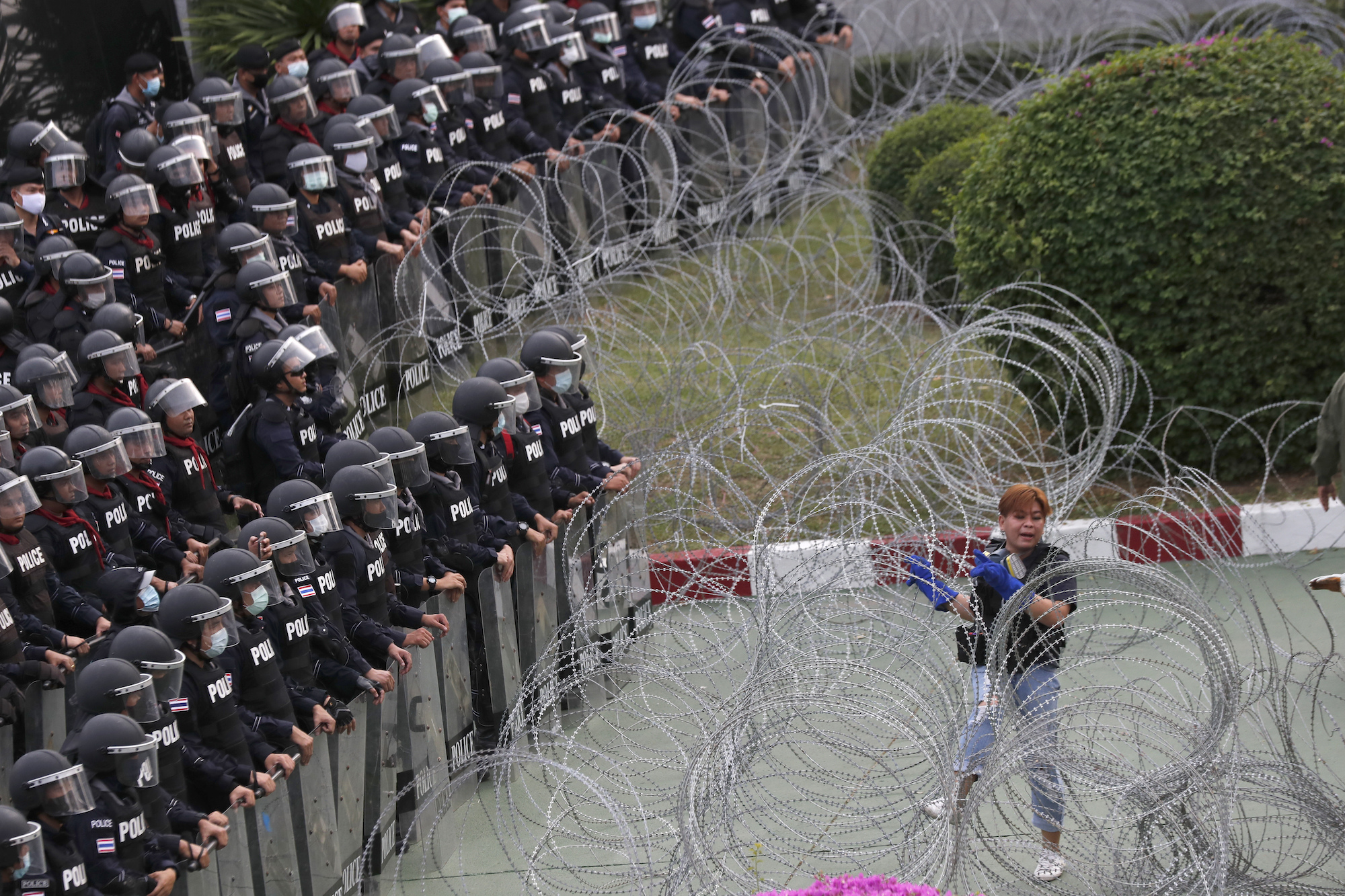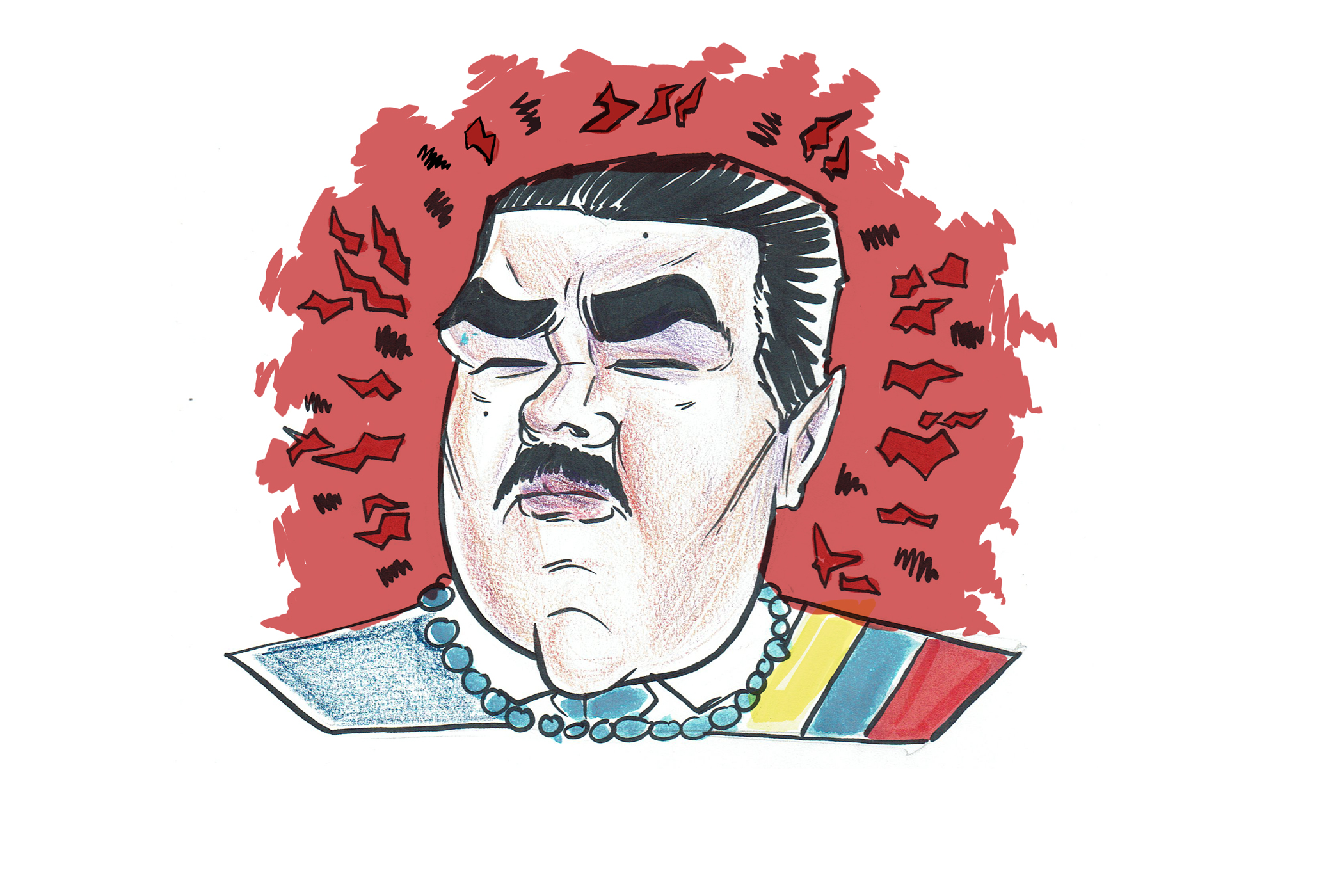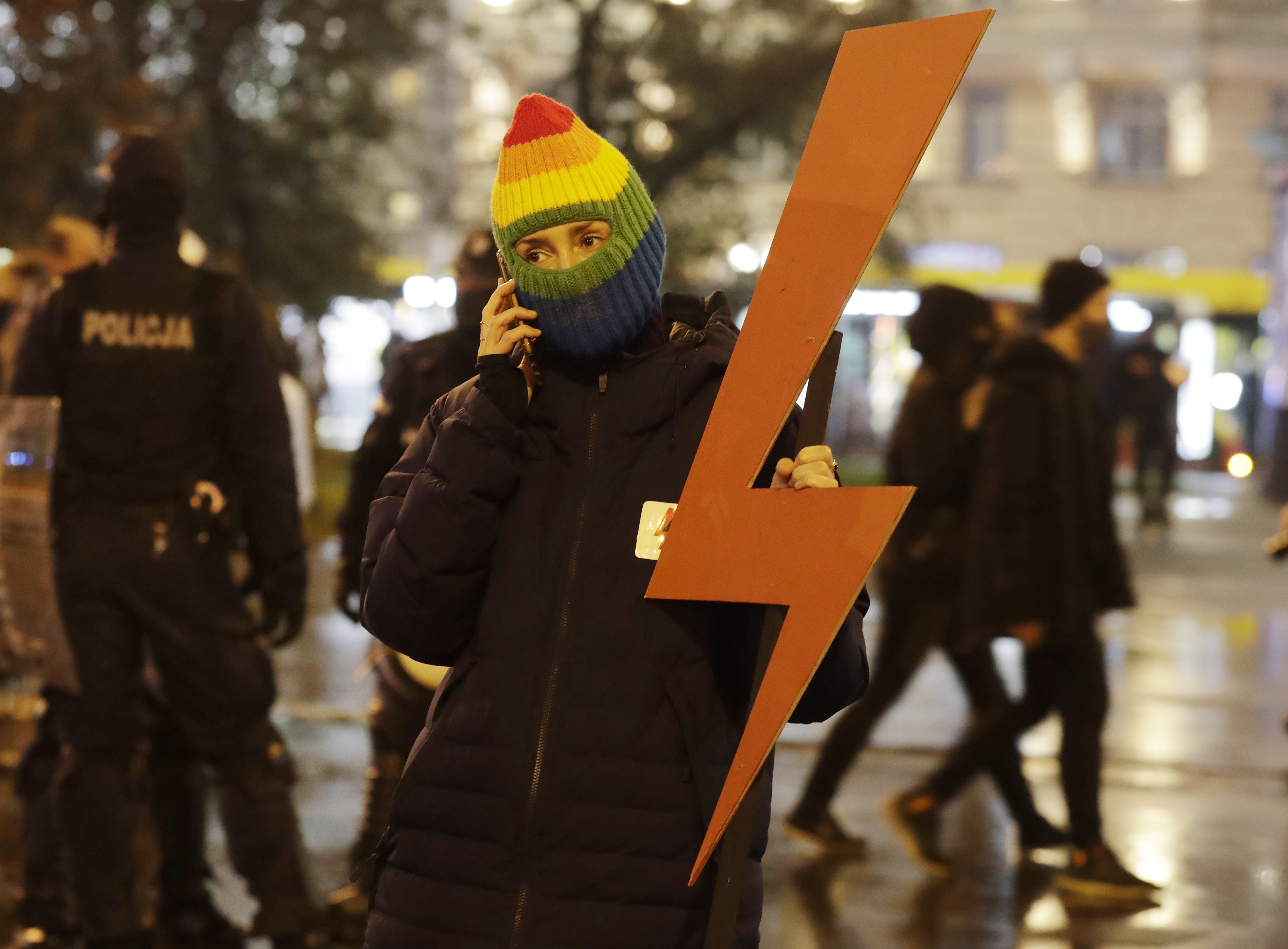Thailand’s recent parliament vote on possible reforms to the constitution resulted in thousands of protests across the country, according to CNN.
Parliament voted on seven motions that would create constitutional reform to varying degrees, including one that could potentially lead to reform of the monarchy. Only two motions passed that allowed for discussion of constitutional reform that would not affect the monarchy.
These decisions led to what was considered the most violent night in five months of protests where 55 people were reportedly injured.
Police used tear gas and water cannons in an attempt to disperse rallies in front of Bangkok’s parliament building on Nov. 17. Previous rallies have also included tensions between demonstrators and pro-monarchy supporters
CNN reported two severely injured protesters were allegedly shot with live rounds, but police spokesman Maj. Gen. Piya Tawichai denied using live rounds or rubber bullets.
“We didn’t apply measures deemed unnecessary. Measures used were matching with the protesters’ behaviors,” Tawichai said. “The Metropolitan Police Bureau would like to reiterate that there were no rubber bullets. Rubber bullets were not used during our operation last night. And live ammunitions were certainly not used during our operation.”
BBC News reported after dozens were injured in the “violent protests,” protesters marched to the Royal Thai Police headquarters in Bangkok and threw glass bottles over the walls of the police headquarters.
As some demonstrators hurled buckets of colorful paint and sprayed graffiti on the police headquarters’ building facade, others sprayed anti-royal slogans on walls and defaced a pedestal which bore a picture of Thailand’s Queen Mother Sirikit.
Demonstrators do not seek to abolish the monarchy, but possible reform would ensure the accountability of and limits to the king’s power. The movement continues to see huge challenges, considering the long-held taboos and prison lengths for speaking against the monarchy in the country.
Thailand is known to be one of the strictest countries regarding criticizing the government. The country’s lese-majeste law, according to BBC News, forbids offense or insult towards the monarchy. Critics argue that the law is a suppression of free speech.
After seizing power in a military coup in 2014, the dissolution of parliament and the entrenchment of the military’s power in the constitution prompted a youth-led organization to hold regular demonstrations against Prime Minister Prayut Chan-o-cha.
The Guardian reported inflatable dinosaurs were held during the protests as a symbol of the Thai government. “We will talk about all the topics that the dinosaurs don’t want to hear,” said one of the protest organizers. “We will act as a meteorite and hit the outdated ways of the older generations in this country.”
Saturday’s rally by Bad Students—a group that embodies school pupils and protesters—also represented untouched aspects of the movement that are not only related to monarchy and government reforms, such as the flaws of the educational system in the country.
Janjira Sombatpoonsiri, assistant professor of political science at Thammasat University said “authoritarianism doesn’t only manifest through the manipulation of elections, it is exercised in everyday life.”
Some argue that freedom of thought in the country is needed, especially when it comes to the educational system. A speaker in the rally said, “history always mentions the good side of Thailand—changing the story, framing others, admiring someone in the sky.”
The country has a historic tradition where Thai people are not only taught to love and respect their king, but they should fear the consequences of their actions and words that are against him.
“My father taught me that criticising our king was a sin. A taboo,” said 19-year-old law student Danai, one of the protesters demanding reform of the monarchy. “If we talk about it, we’ll have a row and it will ruin our day.”
“Once we had an argument in our car after I criticized the king. For my father the king is untouchable. I asked, why? He said that I am too young to understand. He got very angry, then he went quiet and wouldn’t speak to me.”
According to BBC News, the disagreements about the role of an institution with sacrosanct status in the country happens often within different households, not just Danai’s.
“In Thai society there are groups of hard-core people who are anti-royalists. Also the internet and social media keep pouring out misleading information and fake news. Young people absorb quickly without filtering,” Danai’s father, Pakorn, said.
Families don’t just disagree face to face—some people express their distinctive perceptions on social media, where it could be perceived as extreme.
When a university student in the northern city of Chiang Mai shared a post on Facebook last month about her father wanting to sue her because of her anti-monarchy sentiments, he responded by posting that she was no longer allowed to use his family name.
At rallies, protesters held signs that mocked King Maha Vajiralongkorn recent comment about referring Thailand as “the land of compromise.”
A 17-year-old protester said, “How dare he lie about that. The system is not like that at all. They don’t listen to our voices. They didn’t listen to us because it is not to their benefit.”






